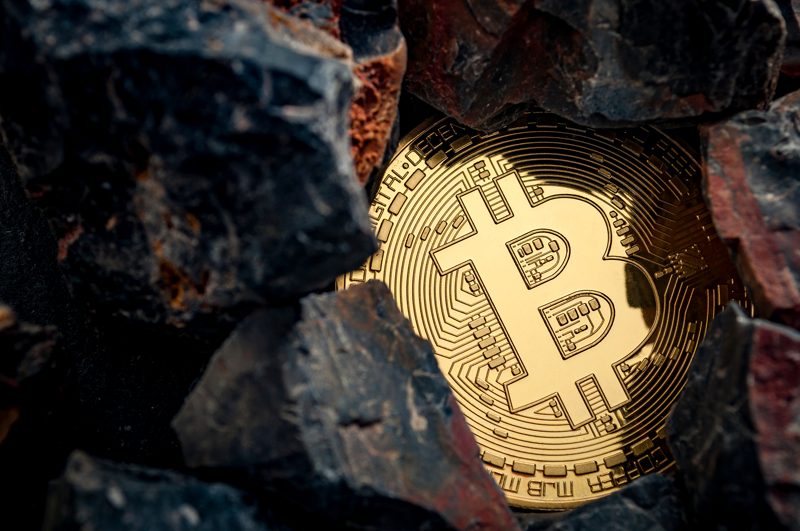The simplest way to describe Bitcoin is to refer to it as virtual money or a virtual token that does not have a physical legal tender. The lack of a physical means of identification of the coins is the major thing that makes it differ from real money. With real money, there is the possibility of having physical cash to back up what you have virtually but not with Bitcoin.
A Bitcoin can also be divided to the point of eight decimals, with the smallest fraction called Satoshi; named after the person who created this virtual currency. Interestingly, the virtual marketplace where Bitcoin is traded and stored is also referred to as Bitcoin. The beauty about this network is that within a short time of working with Bitcoins you can easily get the hang of it.
When trading or attempting to purchase Bitcoins, which you have to do with physical cash, it is pertinent that one is aware that different factors can influence the price of Bitcoins. To learn eight of these factors keep reading below.
1. Government Regulations on Bitcoins
The creation of Bitcoin was done independently without the control or support of any governmental bodies, but as time passed Bitcoin became more popular and the leaders of certain countries feared that it might be used to conduct illegal and nefarious activity. This, in turn, has prompted government bodies in some countries to withhold transactions that would occur with Bitcoin.
Governments exercising such a policy can cause panic in the Bitcoin community, causing people to react and pull out their money. This already happened in Japan. In, 2013 the Japanese government had reason to believe that Bitcoin was being used to fund terrorist activity and in a bid to stop that from happening they ordered banks to pull the plug on Bitcoin usage which caused a nosedive in prices. In the same country five years later, the government lifted the ban on the currency and yes you guessed right, the value of Bitcoin skyrocketed.
2. Technological Advancements
Bitcoin is one of the many offsprings of the internet which in itself is one of the greatest technological advancement in the human race. This helps to explain the relationship between technological changes and the price of Bitcoins. In the marketplace of Bitcoin, there are over a thousand different types of coins that function in almost the same way, but if by chance one of these coins is affiliated to a payment system that is widely known there will be an increase in the value of that coin. When Bitcoin was incorporated into PayPal’s payment portal, the price of Bitcoin surged as it became easier to purchase the currency. This is not the only cases of technological change in the Bitcoin system that influenced the price of this currency.
3. The Laws of Demand and Supply
Students of economics know that the higher, the demand the lower the supply; the lower the supply, the higher the demand and with the increase in demand, comes a hike in price. This digital currency is a commodity that is ‘mined’ and of the amount that was created by the unknown inventor of this currency 80% has been in circulation so far. With an increase in the number of people who use Bitcoin, the higher the demand and just like the aforementioned law states, the higher the price of Bitcoin.
4. The Media and Publicity
When Bitcoin first came to be known by the public, news outlets would spend a significant amount of time discussing and analyzing the marketplace of Bitcoin and the virtual currency itself. With this came a surge in prices. As more people decided to give it a go, there was a spike in interest in the currency and with this spike in interest came an increase in its price.
5. The Buyers of Bitcoin
Diverse groups of people use Bitcoin, and the buyers of this virtual cash have proven to influence the prices and pricing of Bitcoin. In the online marketplace where Bitcoin is exchanged, there are other types of coins that have been rising slowly. Bitcoin was the first to emerge and has proven to be accepted by everyone who is part of the community. This trust and acceptance have influenced the continuous trading of Bitcoins.
6. Threats to Cybersecurity
Bitcoin is purchased with physical cash and in the manner that a bank is protected round the clock, buyers of this digital cash require assurance that all they have invested in the system is safe. This is why any threats to the security of any type of Bitcoin would affect the overall market. In 2014, there was a hack of one altcoin and this influenced sales of Bitcoin during that period.
7. Real-time Market Prices
The economy of the international markets has taken a few hits in the past. These hits would influence how people choose to spend money on Bitcoins. If the world is to experience any of the biggest stock market crashes that have rocked the world, either that of the 30s, 90s and the early 2000s there will be a plunge in the number of people interested in purchasing Bitcoins which in turn would influence its price.
8. Bitcoin Stability
The internet is a fickle place, where stability is not a given. Economic systems are almost like the internet – they can be predicted but with the slightest change in the order of things they can either crumble or grow. Now, a marketplace on the internet is like a dose of double jeopardy. For traders to be willing to put money into Bitcoins – a market system without the assurance of stability, they will need some sort of assurance. If they are unable to get the assurance they need, there will be a drop in the number of people who are supposed to be using this virtual legal tender. This will inadvertently cause an impact on the price of the coins.




